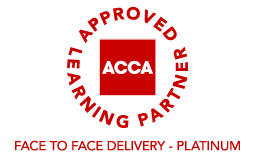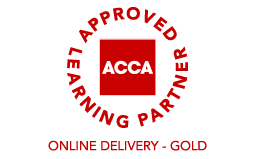What Are the 5 Principles of Financial Literacy?
Are you financially literate? Most people think they are. However, the evidence says otherwise.
In a Bankrate survey of U.S. adults, only 48% report having sufficient savings to cover at least three months’ worth of expenses. Meanwhile, in the United Arab Emirates, a National News article says 44% expect to retire by 55 and 63% hope they can retire by 60, but only 55% have even started saving for retirement.
It appears many people can benefit from online financial training to acquaint them with the pillars of financial literacy and basic principles of finance.
What Is Financial Literacy?
Financial literacy is the ability to make financial decisions and manage personal finances.
When you are financially literate, you understand basic finance principles, such as:
Compound interest
Risk and return
Cash flow
Diversification
Time value of money
About time value of money: A dollar in hand is more valuable than a dollar you will receive in the future. Money has earning potential, so the money you have today is more valuable than the same amount tomorrow because you can use it sooner to make more money. Inflation also eats at the value of money, so $1,000 now is more valuable than $1,000 next year. Additionally, uncertainty can rob you of the chance of getting the promised amount; if the person who owes you the $1,000 loses all their money, you won’t get your money.
Additionally, you understand the concept of debt. You don’t think credit cards are free money. You appreciate the implications of inflation, particularly how it means your $100 will not have the same value next year as it does today.
Financial literacy also means financial management skills. A financially literate person can:
Budget their income
Manage and pay off their debts
Decide how much to save
Decide how much to invest and where
There’s also financial literacy for entrepreneurs. This is the ability to:
Write and understand financial reports
Analyze financial data
Draw insights from and make decisions based on such data
This type of financial literacy, which is useful in business, is something you can learn by enrolling in an accounting course, like our Association of Chartered Certified Accountants or ACCA course.
When you are financially literate, you are (or know how to stay) on top of your finances. You are (or are capable of becoming) financially stable. In contrast, financial illiteracy can manifest in the following ways:
Zero or limited access to financial services
Zero or low savings
High debt and high interest rates
Bankruptcy
Falling victim to fraud or scams
What Are the 5 Principles of Financial Literacy?
Financial literacy is built on five principles. Master these to become financially stable.
Earning Money
Income is the money you earn from your job, commissions or business. Your paycheck, pre-deductions and pre-tax withholdings, is your gross income. Your take-home pay is your net income; it is your gross income diminished by tax withheld and other deductions.
Net income is equivalent to disposable income, which is your post-tax and post-necessary-deductions income. It is the money you have available to save, invest and spend.
This knowledge is key to your financial well-being. If you want more disposable income:
Upskill to improve your earning potential.
Increase or multiply your income streams.
Saving and Investing
Every cent you spend is money you cannot save or invest, so you must decide where your net income should go. This is what budgeting is, or the process of allocating income to one’s individual spend, save or invest buckets. Budgeting is a crucial financial literacy skill.
Budgeting tips and recommendations:
Follow these budgeting tips for better personal financial health.
Save first. No matter how much your net income is, put a specific percentage of it into a savings account. Do this before you pay your bills and other expenses.
Track your expenses. How much are you spending on groceries, eating out, rent, and utilities? Tracking your expenses will inform you which ones to eliminate or minimize.
Start an emergency savings account. This is separate from your general savings account and is a fund you will use only for emergencies (computer replacement, car repairs, etc.). Multiply your total monthly essential expenses by three to six times. That’s how much you want your emergency fund to be.
Invest. Allot a portion of your money on investment. Investment instruments include mutual funds, bonds and stocks. Investments earn interest, effectively letting your money work for you.
Invest and save early. If you understand the time value of money and compound interest, you will start saving and investing earlier so you can gain more value through your money’s exponential growth.
Note: You need investment literacy or the ability to read, analyze and understand financial reports and market trends to make wise investment decisions and maximize investment earnings. You can acquire investment literacy through our Chartered Financial Analyst or CFA course.
Protecting Your Financial Well-Being
A good income, savings and investments are not enough. You must have insurance to protect your income, savings and investments from large, unexpected expenses.
The following are the most important types of insurance:
Health insurance: Get insurance to pay for your hospital bills, medicines, medical procedures, and professional fees so you won’t dip into your savings for health expenses.
Income protection insurance: If your hospital stay extends beyond your allowed paid leave credits, income protection insurance will ensure you can get paid the income you’re losing for every day you can’t go to work.
Life insurance: Life insurance will protect the quality of life of the people you care about because they won’t have to use your savings and investments to pay for estate taxes and other expenses related to settling your estate.
Housing, belongings and car insurance: Protect yourself from the cost of replacing or repairing your property and belongings after a theft, accident or a catastrophic event.
Spending
There are necessary and unnecessary expenses. Your groceries, rent and utilities are required. Eating out is not.
The key to financial wellness is having clarity on your necessary (needs) and unnecessary (wants) spending. Your goal is to minimize unnecessary spending.
Borrowing
Borrowing is a tool you can use to achieve your financial goals. Do you need money to upskill and increase the salary you can demand? You can borrow money to pay for your tuition. Likewise, if you have a business earning you much more than the interest on a loan, borrowing money can be a viable way to increase your income.
When borrowing money, it is important to weigh its pros and cons. Do not borrow money to pay for something non-essential. Additionally, aim for a low credit utilization rate. For instance, keep your credit card balances below 30% of your credit limit.
Financial Literacy in a Nutshell
Financial literacy pertains to the ability to manage finances, make wise financial decisions and attain financial goals. Becoming financially literate means navigating and making all five principles of earning, spending, saving and investing, protecting and borrowing work to your (financial) benefit.
Phoenix Financial Training is a UAE financial training institute that offers ACCA and CFA courses, which will teach you financial literacy as well as help you become an accounting and finance professional.
Contact us to learn more about our financial training programs.



